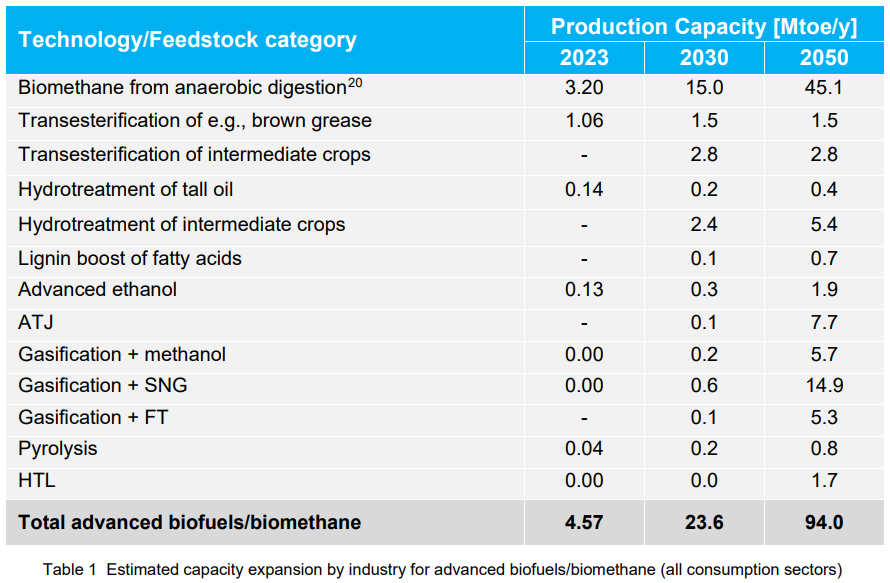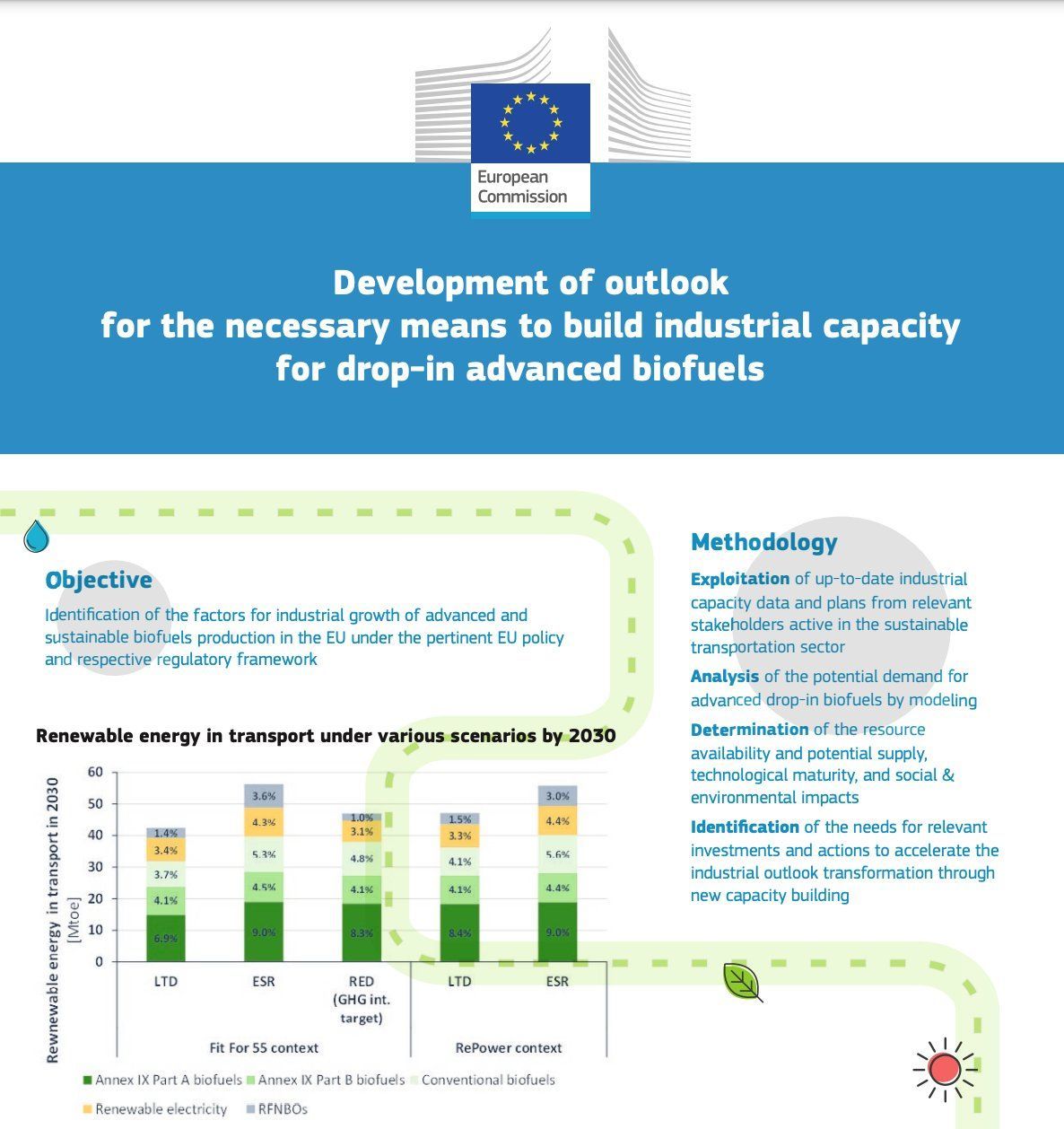Recent EC report explores what is needed to expand the industrial capacity for advanced biofuels production
On 7 February 2024, the European Commission published the report ‘Development of outlook for the necessary means to build industrial capacity for drop-in advanced biofuels’. The objective of the project was to investigate and analyze the factors influencing the industrial growth of advanced and sustainable biofuels production, in the context of the relevant EU policy and regulatory framework.
The final report, executive summary and infographics are available here: Development of outlook for the necessary means to build industrial capacity for drop-in advanced biofuels
Biofuels have a vital role to play in helping reduce emissions in the transport sector as part of the EU Fit-for-55 and the climate neutrality goals, while contributing to increasing the EU’s industrial competitiveness, gross domestic product, and net employment. Such role is expected to further increase in the future, when advanced biofuels will become more and more available thanks to scale-up to full commercial technologies, processes, and value chains, driven by ambitious policies and sectorial targets and fostered by an EU strategy and R&I support.

Findings:
- Biofuels in transport have a particular role to play towards 2030: their demand in the EU could increase by a factor of up to 2.5, compared to 2021 to meet policy climate targets.
- Industry declares ready to invest and estimates that the capacity expansion in the EU for advanced biofuels and biomethane, satisfying demand of all sectors, could reach 23.6 Mtoe/y in 2030.
- Under certain conditions, demand for advanced biofuels may be even higher making the biofuel industry strategically important for the EU in order to ensure a timely and cost-effective delivery of emissions savings.
- A strong regulatory, financing, and technological effort is needed together with a strategy and a roadmap for the EU to build the necessary capacity to scale up advanced biofuel production and to mobilize the required sustainable biomass feedstock domestically.
- Towards 2030, the most important biomass types to be further mobilized are primary residues from arable crops, manure, and stemwood and primary forestry residues, with the support of R&I.
- Emissions avoided by biofuels range from 70 to 126 MtCO2eq/yr in 2030. Biofuels of Annex IX Part A account for 27 – 65 MtCO2eq/yr, while those of Part B account for 10 – 15 MtCO2eq/yr.
- Potential EU impact: The GDP contribution is 0.2% in total EU GDP, while the employment increases up to 220,000 new jobs in 2050.
Disclaimer: This document has been prepared for the European Commission, however it reflects the views only of the authors, and the European Commission shall not be liable for any consequence stemming from the reuse. Reuse is authorized provided the source is acknowledged and the original meaning or message of the document is not distorted.



